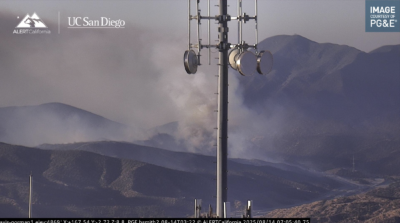By Bill Pan
Contributing Writer
Europe must be ready to join the United States in imposing higher tariffs on China and other countries that buy Russian energy, U.S. Treasury Secretary Scott Bessent said on Wednesday.
In an interview with Bloomberg, Bessent said sanctions on Russia — and nations doing business with it — ”can go up” or “can be loosened” depending on the outcome of President Donald Trump’s meeting with Russian President Vladimir Putin, scheduled for Friday.
Regardless of how the meeting turns out, he said, Europe should align with the United States on these measures.
“We expected that [Putin] would come to the table in a more wholesome way. It looks like he may be ready to negotiate,” Bessent said. “We put secondary tariffs on the Indians for buying Russian oil. And I could see if things don’t go well, then sanctions or secondary tariffs could go up.”
The secretary was referring to tariffs against Russia’s trading partners, a part of Trump’s strategy to pressure Russia into returning to peace talks after more than three years of war in Ukraine.
Oil exports have become a vital source of revenue for Russia, as it seeks to sustain its war effort amid Western sanctions that have inflicted much economic pain. Taking advantage of these sanctions, India and China have emerged as the primary buyers of Russian oil at discounted prices, collectively absorbing more than half of Russia’s crude oil exports in 2024.
An additional 25% tariff on goods from India is set to take effect later this month over its purchases of Russian energy. This is on top of a 25% baseline import tax that’s already being collected.
When asked if China could face similar penalties, Bessent said he would rather not speak ahead of Trump but emphasized that if such measures were enacted, Europe needs to get on board to maximize their impact.
Highlighting the Europeans’ unwillingness to act against China, Bessent recounted an episode at the G7 summit in Canada in mid-June. According to Bessent, when he asked other G7 leaders if they would support a 200% secondary tariff on China, “everybody wanted to see what kind of shoes they were wearing.”
“The Europeans need to join us in these sanctions,” he told Bloomberg host Jonathan Ferro. “The Europeans need to be willing to put on these secondary sanctions.”
“It’s put up or shut up time,” he continued. “The president is creating his own leverage. We need the Europeans to come in and help create more leverage.”
The Trump-Putin meeting is set to take place in Anchorage, Alaska. It will mark Putin’s first visit to the United States in a decade and the first in-person meeting between the two leaders since Trump returned to the White House in January.
The White House described the meeting as a “listening exercise” for Trump, indicating there may not be an immediate breakthrough in the peace process.
“The goal of this meeting for the president is to walk away with a better understanding of how we can end this war,” White House press secretary Karoline Leavitt said in a Tuesday press briefing.









